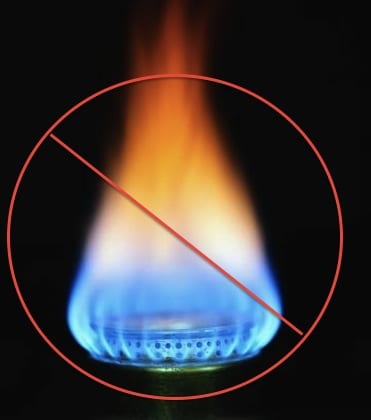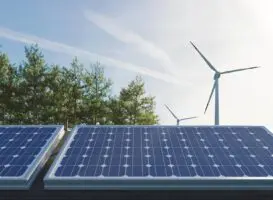For decades, the Gas & Fuel Corporation of Victoria, through their retail shops, offered low quality, low performance gas heaters at a discount to customers to entice them to take up gas and use lots of it at their properties.
After privatisation, the Gas & Fuel’s network of High St shops was taken over by Origin Energy, which continued to offer subsidised gas appliances to Victorians.
At the same time, customers within the existing gas supply footprint and beyond (such as in new estates or new towns supplied by gas) have been offered discounts on appliances or free appliances to connect up and use their gas.
The electricity industry, meanwhile, charges a customer a considerable amount of money for a grid connection. In the case of a home a fair distance from the distribution network, the fee to connect can be in the tens of thousands of dollars.
What the Gas & Fuel Corporation, and later Origin, were actually doing was encouraging people to get off electricity for gas, reducing demand for electricity and therefore its profitability.
Many people do not realise that the gas supply industry is in competition with the electricity supply industry – at the moment, even more so than with home solar (though watch this space, as it is rapidly changing). And because the companies controlling much of these three industries are intertwined, there doesn’t seem to be much concern about the situation or interest in considering the competitive aspects and opportunities.
The best opportunity for growth and security in the electricity retail, generation and distribution business would be to take a leaf out of the gas industry’s book and start opening electricity industry retail stores to promote the switch from gas to electricity. Given that it is 2014, perhaps these stores could be setup predominately online with a limited retail presence – a bit like computer company Apple’s approach to retail.
Such stores would promote the purchase and installation of electrical appliances, such as induction cooktops, heat pump hot water units, and reverse cycle air-conditioning for heating; all of which can replace gas appliances. They’d also offer very good interest-free or low interest loan arrangements to customers who chose to contract for long periods of time, securing their business.
With this kind of opportunity to lock-in customers (in a friendly, no-interest loan way) and avoid customer churn, businesses would be able to spend time on growth rather than maintaining the merry-go-round farce of mobile customers who switch from retailer to retailer adding a significant cost to the bottom line borne by all customers as unnecessarily higher rates.
This opportunity is not as compelling for all distributors and retailers. For example, in Victoria (where gas has the highest level of penetration) SP Ausnet, United Energy and Jemena all distribute gas and electricity. That leaves Citipower/Powercor as the one network business that could significantly benefit, without being internally conflicted by actively promoting a switch from gas to all electric homes.
On the retail side, Origin, AGL and Energy Australia are all heavily invested in the supply and sale of gas to retail customers. Their main competitors – like Powershop, Momentum and Diamond Energy – mostly only sell electricity, putting them in a prime position to start a business securing customers through supplying them with efficient electrical appliances, similar to a mobile phone purchase plan.
This practice has been going on for a long time in Japan, where all the major utilities promote “All-Electric Houses” and compete head to head with the gas industry for that additional business. Safety, economics, modernity and simplicity are the selling points in the market.
The move from dual fuel gas and electric houses to all-electric houses across Japan saw the average customers revenue rise by almost double, with dual fuel sales at 3,500kWh ( $1050) compared to all-electric homes at 6500kWh ($1950).
Now there is a huge opportunity for a companies like Powershop, Momentum and Diamond Energy to add an online all-electric homes store to their website in addition to their retail power business, backed with finance from a third party or their deep-pocketed owners.
The same can be said for the soon-to-be market entrant, Pacific Hydro retail. An electric home appliance plan offering from them, marketed through their superannuation and other member networks, could build a solid base for their business, reducing the substantial risk of customer churn which is currently borne by all the other smaller electricity retailers.
The days for gas are numbered (read death-spiral), but there is a carcass to be picked over and those in the electricity industry who get in first and offer smart financing arrangements will have the most successful and profitable businesses avoiding the (electricity) death spiral via a more loyal customer base and diversified revenue streams through appliance retailing, servicing and longer term profitable power agreements.








